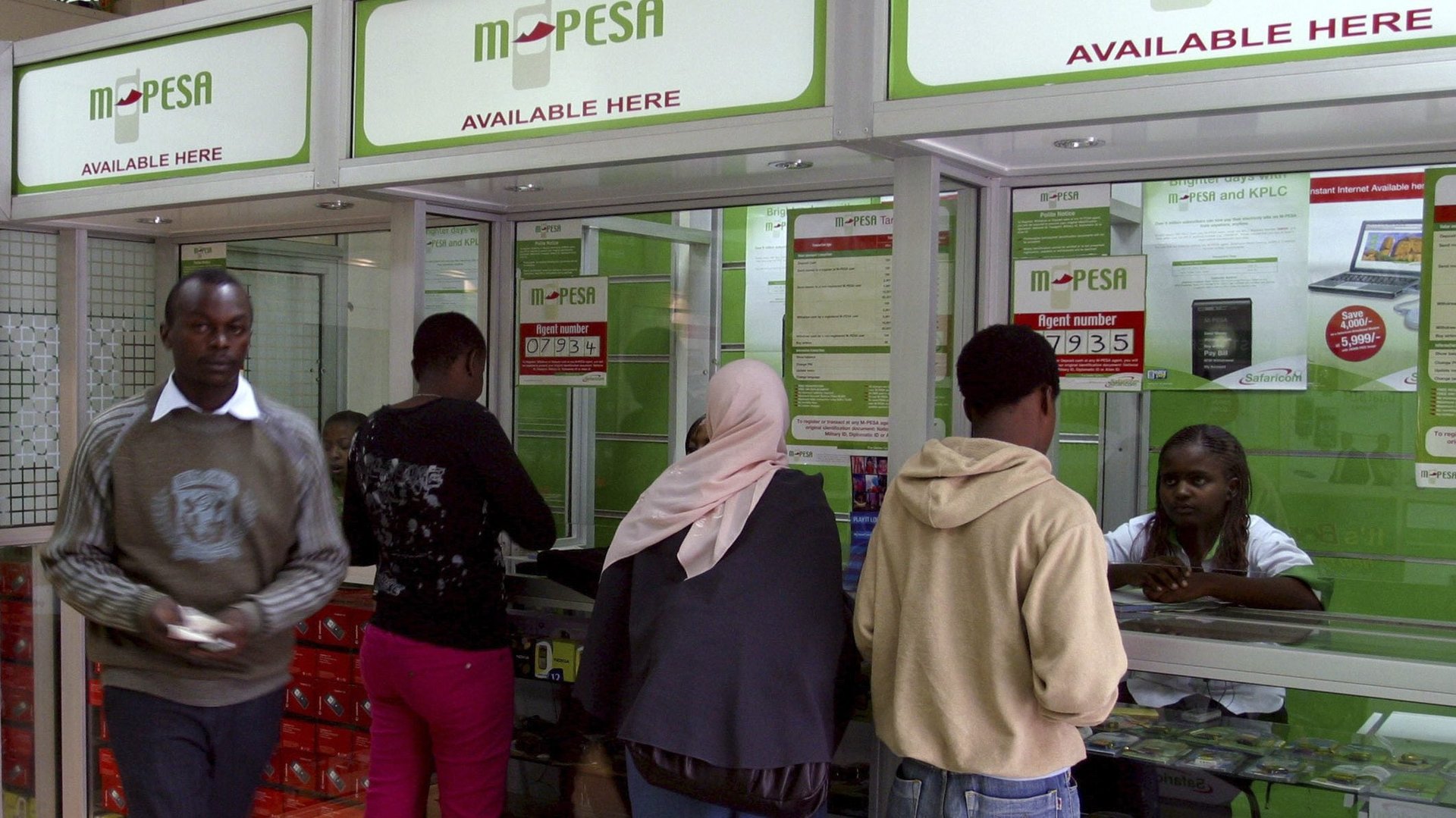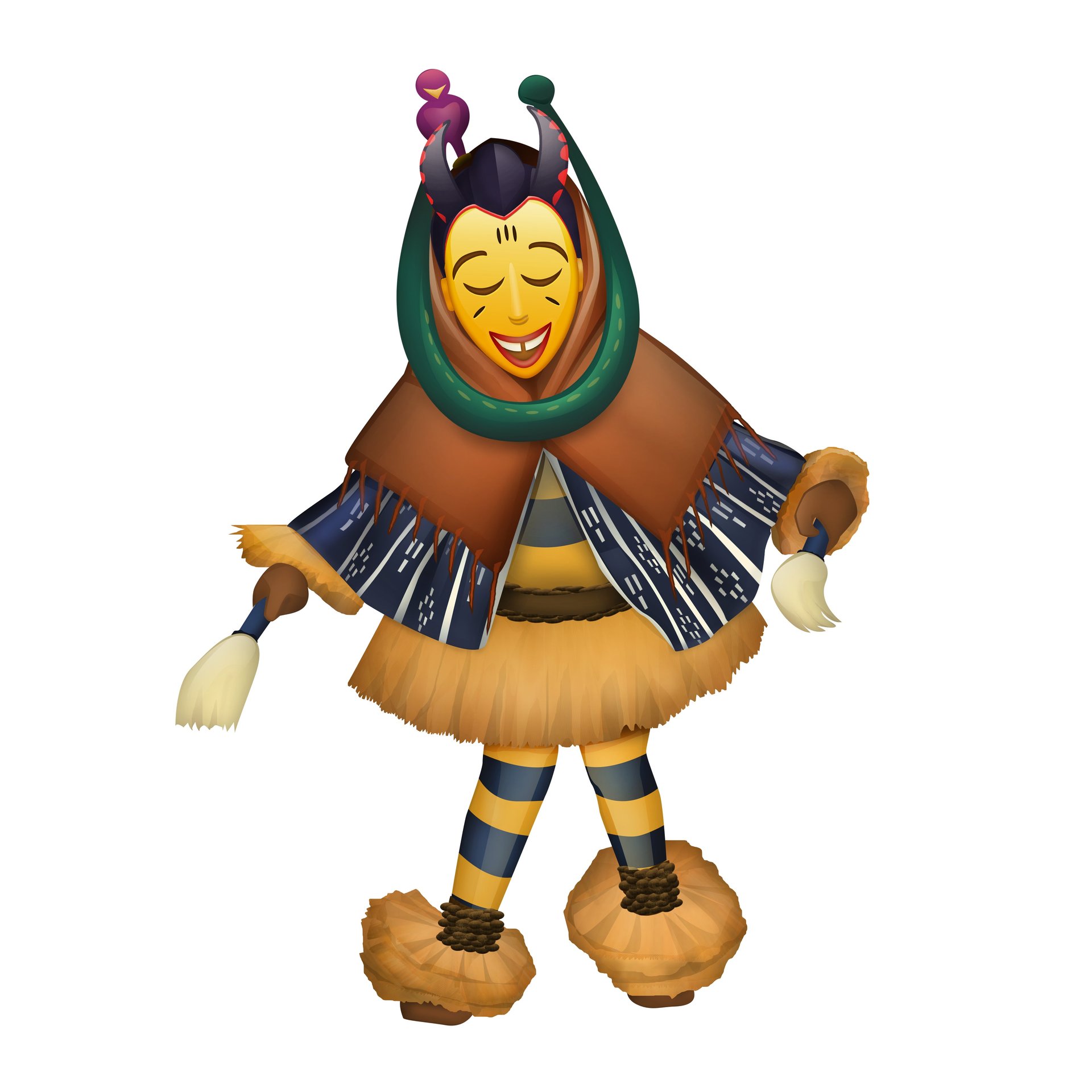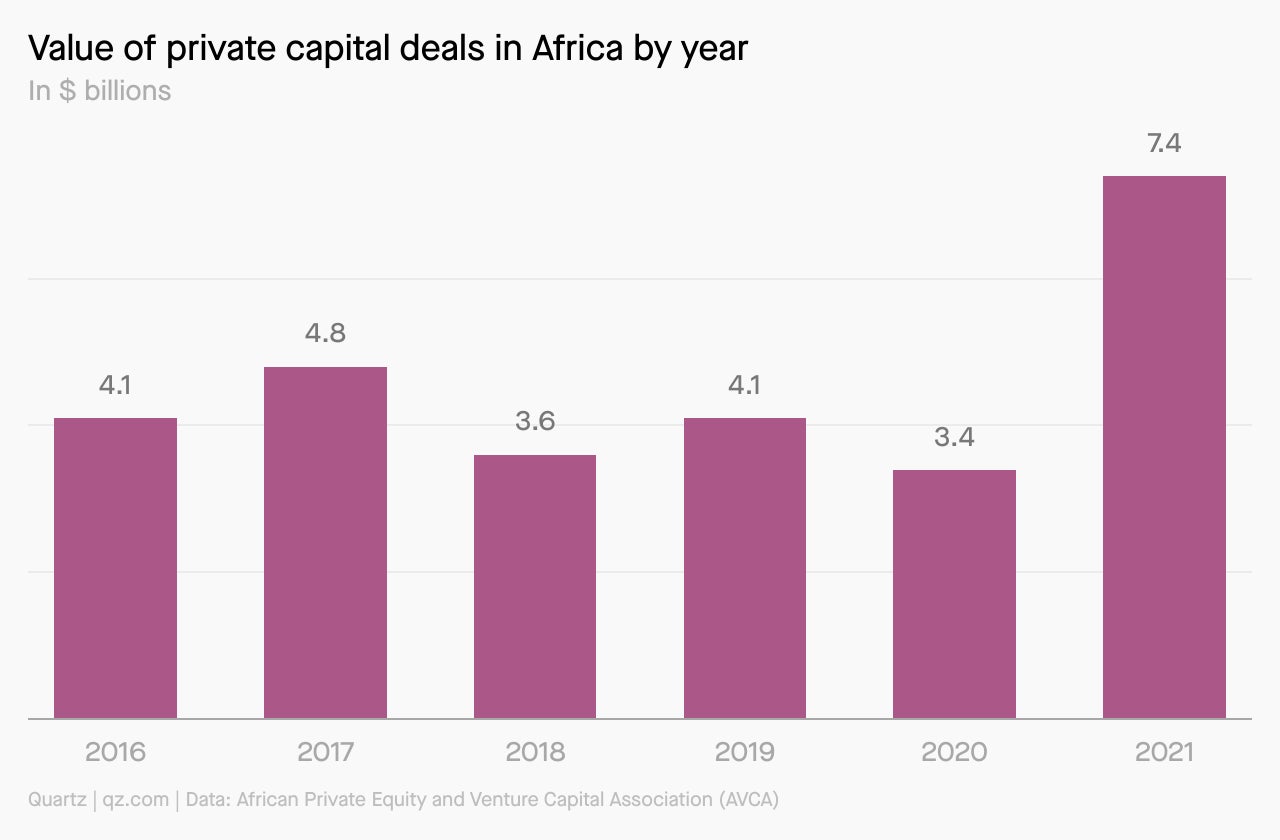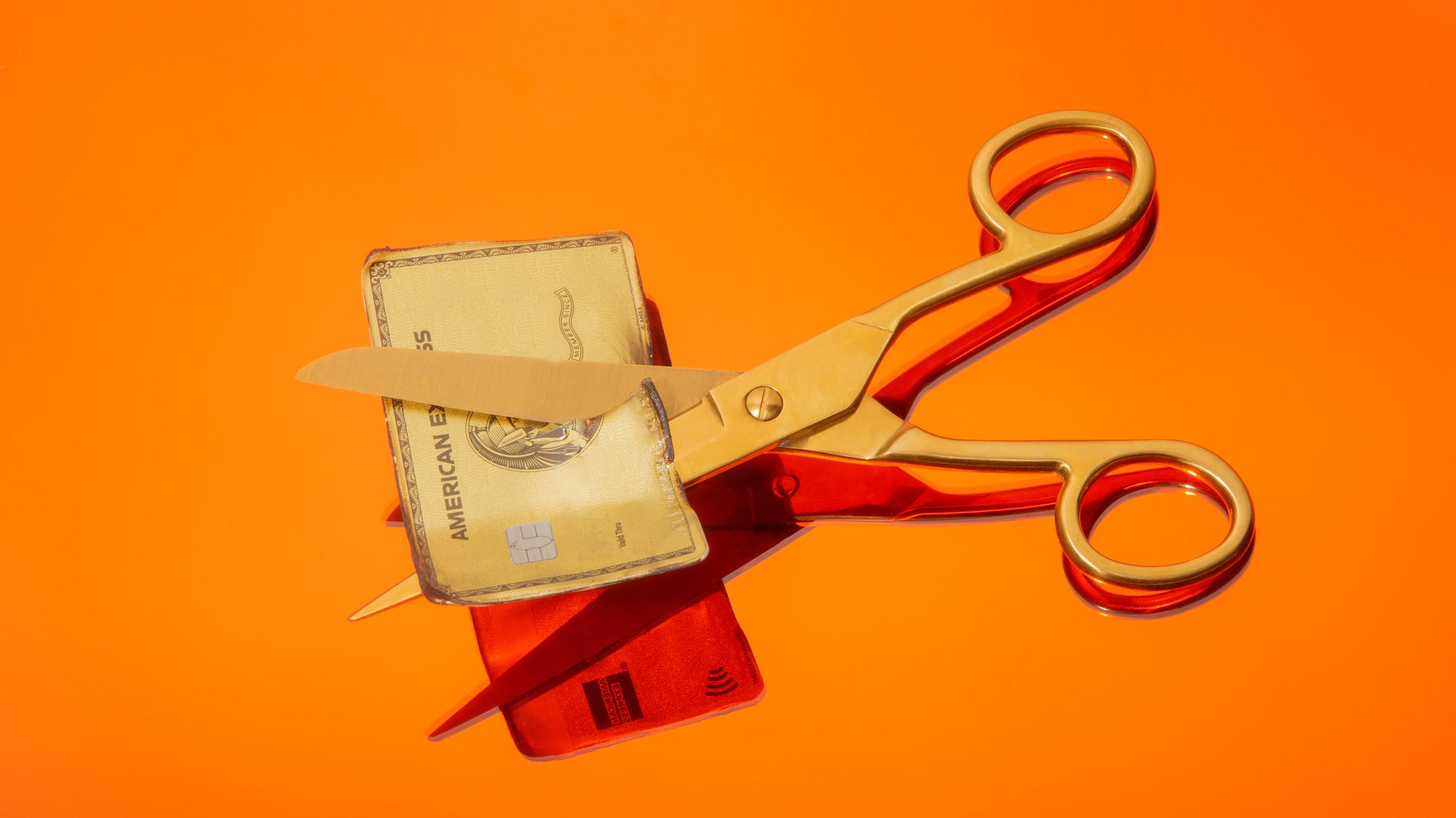Africa’s economic recovery will be short-lived
Hi Quartz Africa readers,


Hi Quartz Africa readers,
This week I had a call with Abebe Aemro Selassie, Africa director at the International Monetary Fund (IMF), to discuss the organization’s most recent report. It found that despite the devastating effects of covid-19 in Africa, the continent’s economy appeared to recover last year—growing 4.5%, well above the 3.7% the IMF had projected.
Unfortunately, that recovery may be short-lived. “With the pandemic, a few segments of society were able to insulate themselves from the [economic] effects,” Selassie says. But more recent developments, like rising fuel and food prices caused by the war in Ukraine, mean the IMF is projecting slower growth (3.8%) for 2022.
Those impacts are already being felt across African cities, whether through the doubling of fuel prices in Nigeria, food inflation and fuel shortages in Kenya, or heightened food insecurity in the Horn of Africa, a region heavily reliant on Russia and Ukraine for wheat imports. The IMF report urges African governments to address the local impact of the war, to balance inflation and growth, and to manage exchange-rate adjustments. But none of these tasks is straightforward, and all require investment.
To generate more revenue, African governments can increase taxes or borrowing, but Selassie has misgivings about both. “Taxes need to pay for government spending, but governments have to use the money transparently,” he says. Last year, several African countries experienced double-digits rates of inflation, and Kenya’s president has said that $18.5 million is stolen from the government each day. That chronic disconnect means Africans are unlikely to respond well to tax increases. But borrowing is also an unattractive option: Several African countries already have debt equaling more than 70% of their GDP, and Zambia’s debt burden exceeds its GDP.
Thus the choice for policymakers is largely between pain now (taxes) or pain later (debt). It’s an unfortunate bookend to a brief moment of recovery. —Ciku Kimeria, Quartz Africa editor
Tell us what you think! To make sure Quartz Africa provides the content you’re looking for, we need to hear from you—take this four-minute survey to tell us what you think and how we can improve.
Inside one African startup
Zouzoukwa began as an illustration project on Instagram. In 2018, Ivorian graphic designer O’Plérou Grebet started creating one new African emoji each day, with the hope of countering stereotypical representations of the continent. “I thought creating emoji would be a fun way for people to discover different cultures and to see their culture in another way,” Grebet tells Quartz.

Soon enough, his 371 emoji became the Zouzoukwa app (it roughly translates to “image” in the local Bété language), and the emoji are also available as stickers on WhatsApp and iMessage. Zouzoukwa has since been downloaded over 200,000 times, and Grebet now has bigger plans: He wants to turn the app into a decentralized autonomous organization (DAO) that uses NFTs to promote representation, and to open up new opportunities for African creators.
Learn more about Africa’s decentralized potential with the most recent edition of the Quartz Africa Member Brief. To get the Member Brief directly in your inbox, sign up for a free trial of Quartz Africa membership.
Quartz gems
What is a DAO? Imagine a company owned and run by its shareholders, without a CEO. Imagine its rules, its governing structure, even its basic functions are locked in and automated by immutable code—specifically by blockchain technology. That’s the central idea behind DAOs, which have become increasingly popular amid a maturing tech ecosystem. But the idea goes beyond corporate structure: Proponents say that the rise of DAOs will transform how people run communities in general, overhauling not just companies, but the broader internet—and eventually, society at large. Read more with our guide to DAOs.
Stories this week
Bitcoin as official currency? The Central African Republic passed a law to adopt bitcoin as legal tender, making it the second country in the world to do so after El Salvador, Tawanda Karombo reports.
Africa awaits Elon’s next move. When Elon Musk takes control of Twitter, he will inherit the company’s year-old project in Ghana, its first office in Africa. Alexander Onukwue explains the stakes.
Another fatal refinery accident. For the second time in six months, an explosion at an illegal refinery in southern Nigeria killed dozens of people. Alexander Onukwue looks at how things could get worse.
Zimbabwe cracks down on mobile money. In its fight to end the dominance of the US dollar as local tender, the government shut down some services and curtailed others, Tawanda Karombo reports.
A historic drought in the Horn of Africa. The crisis could tip 20 million people in Ethiopia, Kenya, and Somalia into extreme hunger. Priya Sippy explains why this drought is the product of cascading failure.
Africa’s biggest telco becomes a media patron. MTN Nigeria is investing in an academic program to teach journalists how to better report on tech, Alexander Onukwue reports. But why?
One chart to watch

Investors pumped record amounts of private equity and venture capital into Africa last year, according to a new report by the African Private Equity and Venture Capital Association. The report found that the total value of private deals in the continent reached a record high of $7.4 billion in 2021, a 118% increase over the year before and almost double the $4 billion invested on an annual average basis between 2016 and 2020.
One person of interest

Elon Musk’s Twitter takeover is getting mixed reactions in South Africa, the country of the eccentric CEO’s birth. Most noticeably, the news has sparked debate over Musk’s identity: Does he identify as American, Canadian, or South African? Priya Sippy looks at what it means when one of the world’s most polarizing figures has citizenship in the three countries.
Looking for more Elon reads? Try these Quartz highlights:
Dealmaker
Farmerline, a Ghanaian company providing farmers access to inputs, raised $6.4 million in equity and $6.5 million in debt. Acumen Resilient Agriculture Fund (ARAF), and FMO, the Dutch entrepreneurial development bank, led the equity round. Farmerline was founded in 2013 and uses warehouses and retail shop owners to reach rural farmers.
Nigerian freight management startup OnePort365 raised $5 million in an equity round led by Mobility 54, with the participation of SBI Investment, Flexport, ODX, and Samurai Incubate. The startup operates in the industry that wants to make African shipping great (for once) using technology.
Can anything kill a nation’s debt?

Well, the first problem is that many people see national debt in a similar light as personal debt. In reality, it operates completely differently. 🎧 Learn more with this week’s episode of the Quartz Obsession podcast, which looks at the world’s complicated relationship with balanced budgets.
Listen on: Apple Podcasts | Spotify | Google | Stitcher
Other things we liked
Nigeria’s thriving Jewish community. Over the years, thousands of Igbo have turned from Christianity to Judaism—attending synagogues, building yeshivas, and teaching themselves how to be Jewish. But as Samanth Subramanian reports for The Guardian, being Jewish in Nigeria can also prove fraught.
More dirt on Africa’s top unicorn. In Rest of World, Abubakar Idris reports new unflattering details involving Flutterwave and its CEO, including how the company’s recent scandal has threatened at least one planned acquisition.
Economic fallout in Zimbabwe. In a story that speaks to the emotional devastation economic struggles inflict, Calvin Manika reports for Reuters on young Zimbabweans getting high off used diapers and sanitary pads.
Soccer distracts from Nigeria’s problems. For New Frame, Oluwashina Okeleji explains why Nigeria’s failure to qualify for the coming soccer World Cup could get the country to focus on worsening insecurity that threatens its existence.
ICYMI
Sponsorship to attend an NFT conference in Manchester. The sponsored person will participate in four days of panels, plus networking and events on NFTs organized by One Young World.
MTN media innovation program. Applications are open for a 6-week program for media practitioners in Nigeria, in partnership with Pan-Atlantic university (May 5).
🎵 This brief was produced while listening to “Finesse” by Pheelz feat. Buju (Nigeria)
Our best wishes for a productive and ideas-filled week ahead. Please send any news, comments, suggestions, ideas, Elon Musk takes, and Flutterwave gossip to [email protected]. You can follow us on Twitter at @qzafrica for updates throughout the day.
If you received this email from a friend or colleague, you can sign up here to receive the Quartz Africa Weekly Brief in your inbox every week. You can also follow Quartz Africa on Facebook.